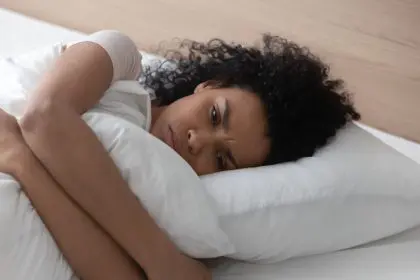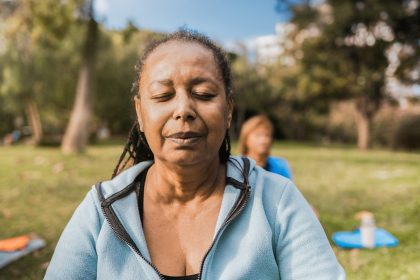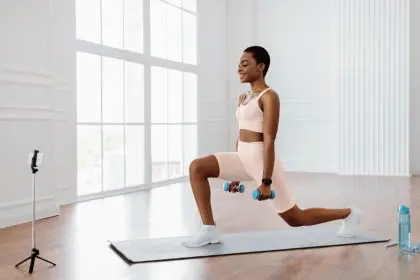Recent studies show that over 80% of Americans experience significant stress regularly, with work, finances, and health concerns leading the causes. In today’s hyperconnected world, the challenge isn’t just managing stress but finding practical, sustainable ways to build resilience. Research from the American Psychological Association indicates that implementing targeted stress-reduction techniques can reduce anxiety symptoms by up to 60%.
Understanding stress and anxiety
The body’s stress response, while natural, can become overwhelming without proper management. Chronic stress affects everything from sleep quality to cardiovascular health. Recognizing this connection between mind and body is crucial for effective stress management.
Key stress indicators include:
- Persistent muscle tension
- Sleep disruption
- Digestive issues
- Mood changes
- Concentration difficulties
- Physical fatigue
Mind and body techniques
Deep breathing exercises
Research from Harvard Medical School shows that controlled breathing exercises can lower blood pressure and reduce cortisol levels within minutes. The 4-7-8 breathing technique, developed by Dr. Andrew Weil, has shown particular effectiveness:
- Inhale quietly for 4 seconds
- Hold breath for 7 seconds
- Exhale completely for 8 seconds
- Repeat 4 times, twice daily
Studies indicate regular practice can reduce anxiety symptoms by up to 40%.
Mindfulness meditation
A 2023 study in the Journal of Clinical Psychology found that just 10 minutes of daily mindfulness practice can:
- Decrease anxiety symptoms by 30%
- Improve focus by 25%
- Enhance emotional regulation
- Reduce rumination by 40%
Beginner’s practice guide:
- Find a quiet space
- Set a timer for 5-10 minutes
- Focus on natural breathing
- Notice thoughts without judgment
- Gently return focus to breath when distracted
Progressive muscle relaxation
Clinical studies show PMR can reduce physical tension and anxiety within two weeks of regular practice. The technique:
- Sit or lie comfortably
- Start with foot muscles
- Tense for 5-10 seconds
- Release completely for 30 seconds
- Notice the sensation
- Progress upward through body
- Practice daily for best results
Lifestyle modifications
Exercise routines
The American Heart Association recommends 150 minutes of moderate exercise weekly for stress management. Benefits include:
- 45% reduction in anxiety symptoms
- Improved sleep quality
- Enhanced mood stability
- Better cognitive function
Recommended activities:
- Brisk walking (30 minutes daily)
- Yoga or gentle stretching
- Swimming
- Cycling
- Low-impact aerobics
Dietary adjustments
Research shows direct links between diet and stress levels. Key modifications:
Reduce or eliminate:
- Caffeine after 2 PM
- Processed sugars
- Alcohol
- High-sodium foods
Increase intake of:
- Green leafy vegetables
- Omega-3 rich foods
- Whole grains
- Fermented foods
- Water (minimum 8 glasses daily)
Sleep optimization
Evidence-based sleep hygiene
The National Sleep Foundation reports that quality sleep can reduce stress by up to 60%. Essential practices:
Evening routine:
- Dim lights 2 hours before bed
- Set consistent sleep/wake times
- Remove electronics from bedroom
- Maintain cool room temperature (65-68°F)
- Use white noise if helpful
Morning routine:
- Natural light exposure within 30 minutes
- Light stretching or movement
- Consistent wake time
- Delayed caffeine consumption
Social support and boundaries
Building support networks
Research indicates strong social connections can reduce stress by up to 50%. Essential elements:
- Regular contact with supportive friends/family
- Professional counseling when needed
- Community involvement
- Group activities
- Shared hobbies
Boundary setting
Psychological studies show clear boundaries reduce stress by 40%. Implementation strategies:
- Define personal limits
- Communicate expectations clearly
- Practice saying no
- Assess commitments regularly
- Honor personal time
Creative expression and nature connection
Arts and creativity
Engaging in creative activities reduces cortisol levels by up to 45%. Options include:
- Visual arts
- Music making or listening
- Writing or journaling
- Dance or movement
- Crafting or DIY projects
Nature interaction
Studies show 20 minutes in nature reduces stress hormones by 30%. Activities:
- Daily walks in green spaces
- Garden maintenance
- Outdoor meditation
- Nature photography
- Forest bathing
Digital wellness
Screen time management
Research indicates excessive screen time increases stress by 35%. Management strategies:
- Set app time limits
- Create tech-free zones
- Practice regular digital detoxes
- Use blue light filters
- Implement notification controls
Goal setting and organization
Structured approach to tasks
Breaking down goals increases success rates by 70%. Method:
- Identify main objective
- Create smaller milestones
- Set realistic timelines
- Track progress
- Adjust as needed
- Celebrate small wins
Professional support
When to seek help
Consider professional support if experiencing:
- Persistent anxiety
- Sleep disruption
- Physical symptoms
- Relationship strain
- Work performance issues
- Difficulty with daily tasks
Implementation strategy
Success in stress management comes from consistent practice and patience. Start with:
- Choose 2-3 techniques
- Practice daily for 30 days
- Track effectiveness
- Adjust as needed
- Add new techniques gradually
Moving forward
Remember that managing stress is an ongoing process, not a destination. Research shows combining multiple techniques can reduce overall stress levels by up to 75%. Start small, remain consistent, and build upon successes gradually.
This story was created using AI technology.















